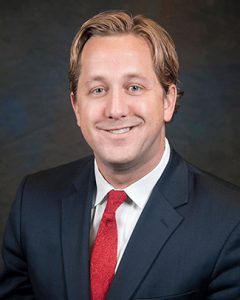Lake County chairman talks in McHenry about efficient government
Gregory Harutunian For Chronicle Media — May 24, 2017 Lake County Board Chairman Aaron Lawlor accepted an invitation to speak to members of the McHenry County Board, during their Committee of the Whole meeting, and pressed the issue of consolidation and efficiency in government, continuing an argument begun in 2015, as a statewide awareness campaign to reduce more than 7,000 governmental units.
Lake County Board Chairman Aaron Lawlor accepted an invitation to speak to members of the McHenry County Board, during their Committee of the Whole meeting, and pressed the issue of consolidation and efficiency in government, continuing an argument begun in 2015, as a statewide awareness campaign to reduce more than 7,000 governmental units.
An executive order signed Feb. 17 of that year by Illinois Gov. Bruce Rauner created the Local Government Consolidation and Unfunded Mandates Task Force, a 25-member group charged with identifying issues with local government and school district consolidations, and their inherent redundancy. Current McHenry County Board Chairman Jack Franks was a member of that panel, and he has maintained a position of reducing unnecessary governmental agencies.
For most of that year, the board grappled with the issues of township consolidation. During an Oct. 9 session, it voted 13-9 to deny a March 2016 primary referendum ballot question on the subject. Its failure was due to the same reason that plagued a county task force convened to research the subject: The economic disparity and imbalance between townships regarding equalized assessment valuations.
Lawlor’s May 11 appearance, which came through Franks, touched on consolidation as a means of lowering costs arising from the duplication of essential services, between various agencies completing the same job. He also mentioned the concept of “mutual cooperation” between the two counties, and joining forces on services.
“Absolutely, we have to deliver government services that are needed in the most cost-efficient manner,” said Lawlor, several days later. “There are state funding questions in the future, and we have to be forward-looking to new models of government. We have to deliver value for the taxpayers, and we need reform to attach to the property taxes.”
Both Lake and McHenry counties carry the highest property taxes in the state, causing the migration of residential and commercial consideration to other areas, in and out of the state. McHenry County has 17 townships, and consolidation efforts have stalled without a purposeful model. Lawlor cited 911 services as an example by noting that McHenry County has one central emergency dispatch center, while Lake County has more than one dozen individual such call centers.
“In Lake County, we have 18 townships with a total population that is 18,000 less than DuPage County, but twice as many townships,” he said. “We have 46 school districts, 52 municipalities, 16 library districts, and a duplication of back-office expenses. This is the type of thing that needs to be looked at … all these units and unwieldly government.”
DuPage County’s board was granted powers to eliminate certain forms of government by the state General Assembly in a sentinel program. In 2014, the powers were extended to Lake and McHenry counties. House Bill 3251 also established a four-year moratorium on creating new forms of government. Sponsorship of the bill came jointly through state Sen. Terry Link (D-Vernon Hills) and Franks.
At the meeting, Lawlor said the discussion of tax rates, responsibility for payments, and the debt assumption from one county to another in a consolidation picture were counterproductive to the aspect of sharing services. As a historical note, Lake County broke off from McHenry County using the eastern townships in 1839.
“Lake and McHenry counties used to be one, and most recently, shared the 19th Judicial Court system,” Lawlor said. “We grew up and apart, and now, we have to develop areas where we can work together. Actually, we have to consolidate services in order to be effective.”



